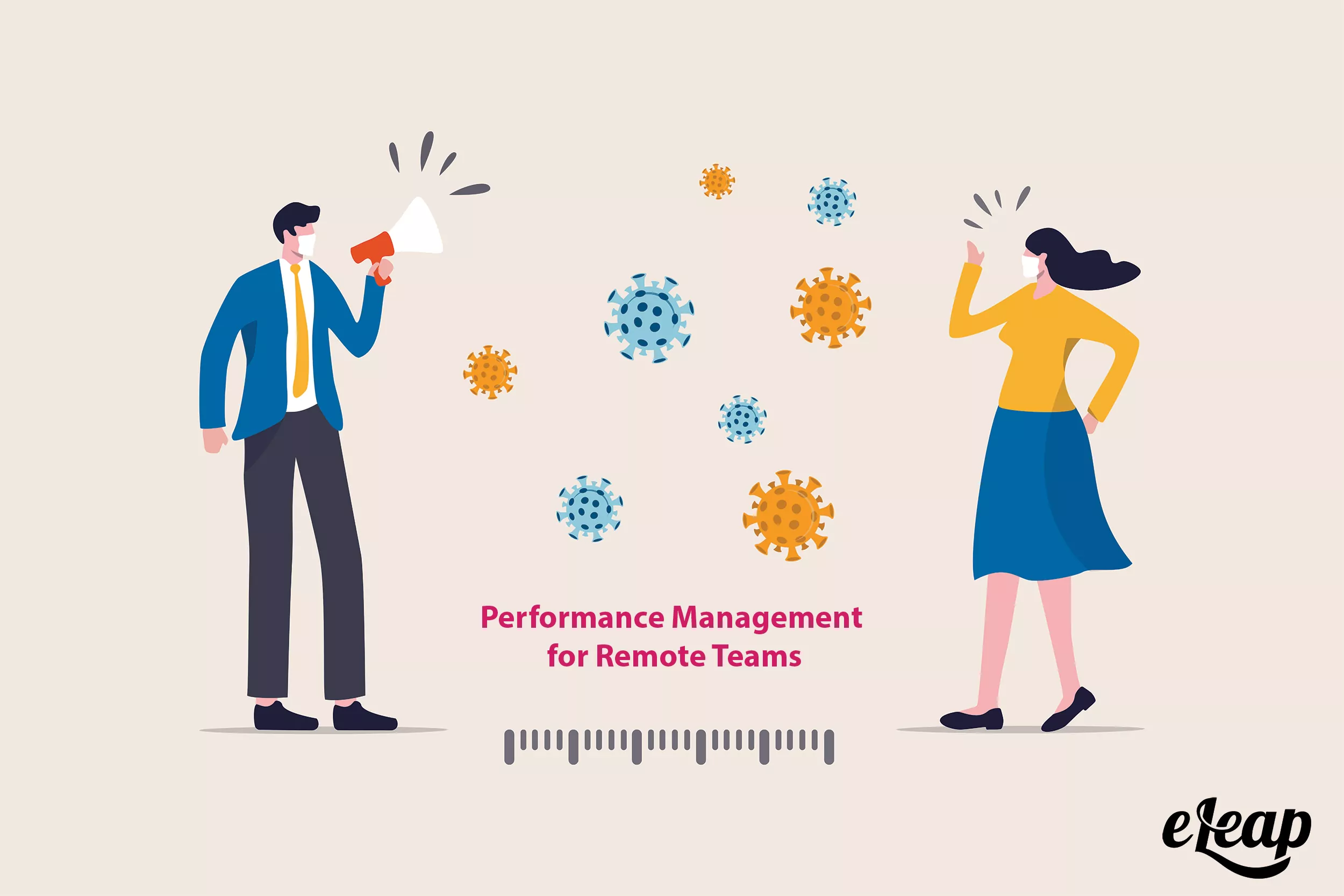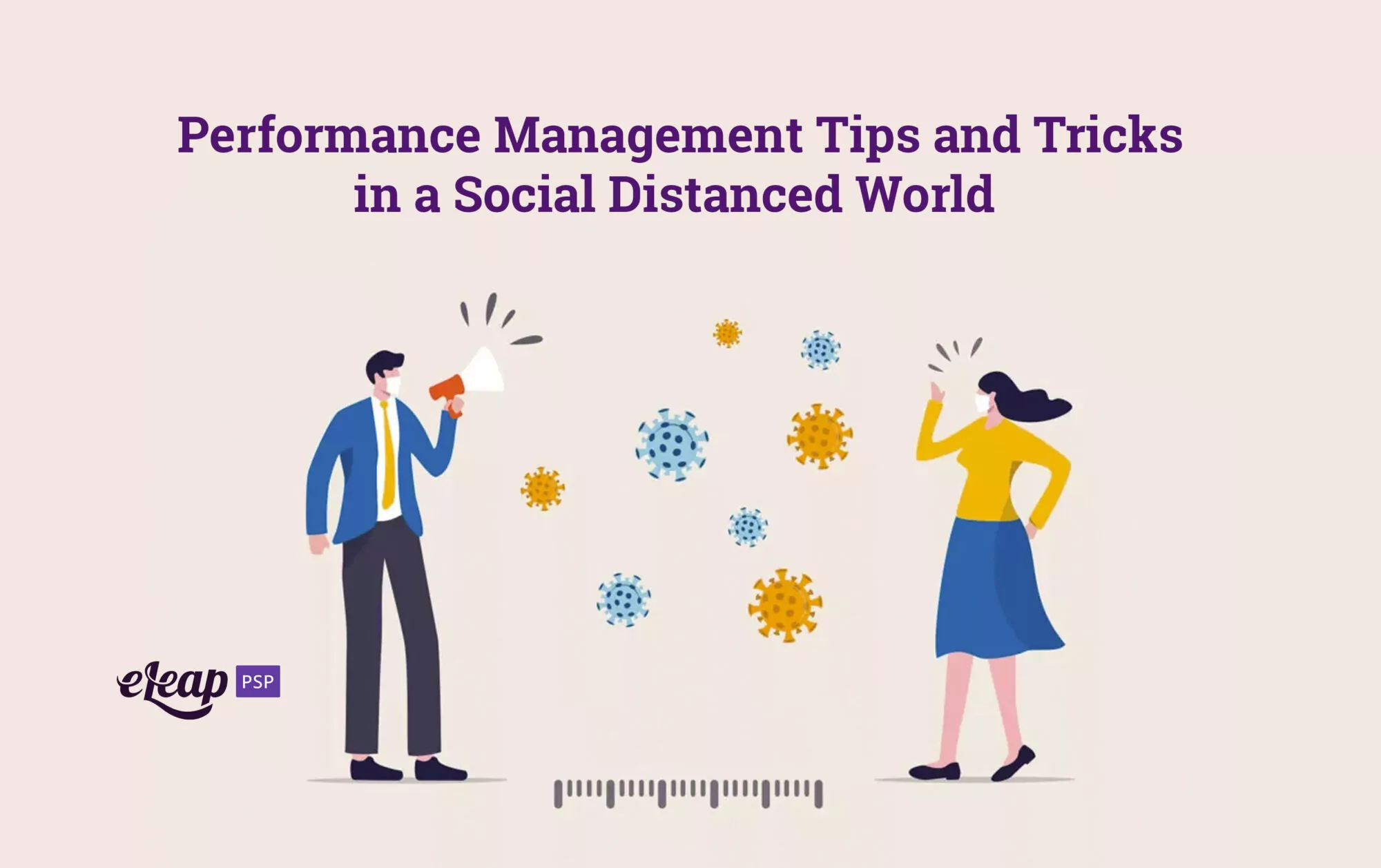Performance Management Tips and Tricks in a Social Distanced World

Performance management is an ongoing and essential process. Without it, your team may fail to hit specific targets, and the organization could suffer. It also means that your employees will be unable to develop and grow.

However, what happens to performance management during a pandemic like COVID-19? Does it get paused? Does the remote nature of the new normal mean that performance management is unnecessary? Does social distancing mean that your team no longer has the same targets to hit or that individual improvement and enrichment no longer matter? We’ll explore these questions and more below.
Should Performance Reviews Still Occur?
If you’re one of the organizations still using formal performance reviews, now’s a great time to consider ditching those in favor of methods more attuned to the modern world. However, you may be wondering if those reviews should be continued during the pandemic. To answer that question, you’ll need to answer a couple of others.
First, is your performance review process very well established? Second, is most of your team still working? If you answered affirmatively to both of those, then you may be able to continue with business as usual, although there’s a very strong argument to make now the time you get on board with modern performance management methods rather than relying on yesteryear’s tools.
If you answered no to those questions, then you should probably hit the pause button on your reviews. Again, it’s probably a great time to rethink your approach here in the first place. Annual or twice-yearly performance reviews are less effective than you might think, and modern approaches can make a much greater impact on employee performance, retention, and longevity.
Change Your Expectations
One thing that managers and leaders must do in the post-pandemic, socially-distanced world is to change their expectations. Without exception, your expectations of employee performance are based entirely on face-to-face interaction within a physical location. They are unlikely to be based on remote working, which is a very different thing. Reset your expectations about:
- How work is done
- How communication occurs
- When work is done (as long as it’s by the deadline)
- When communication occurs
- The formality of communication and interaction
In short, you must focus on results and on providing flexibility to employees cast into a brand-new world. It’s also worth noting that there’s a high likelihood that you’ll need to change your expectations where deliverables are concerned. For instance, if you were used to getting X done within eight hours, it might be more reasonable now to expect to reach that mark in 12 hours.
Focus on Communication
For organizations that already follow the check-in and discussion review model, little may change here. For companies still mired in the past and using annual reviews, this represents a pretty seismic shift. What you will need to do is focus on ongoing, accurate communication.
Create a discussion with employees in which you talk about performance, the challenges they are facing, the successes they have achieved, and more. Think of it like a weekly fireside chat rather than some sort of punitive approach. The goal is to encourage, support, and raise up rather than chastise and cast down. And, because chances are very good that you’re still in at least a partial-lockdown mode and won’t have direct, face-to-face interaction, ongoing communication helps ensure better accuracy at all times.
Be Committed to Flexibility
Things have changed. The world is in upheaval. While the situation might be improving, and some states are talking about opening segments of their economies back up shortly, it is not business as usual.
Remember that this affects your team members, as well as your business. If you only focus on the impact on the company, you will not be able to manage performance accurately. You’ll likely alienate the very people you’re trying to manage.
Understand that the vast majority of your employees are not used to working remotely. Realize that in addition to being in a different environment, chances are good they have other things to deal with. Their kids are out of school. Their spouses are at home. Their dogs need to be walked. Their neighbors are checking on them.
Working from home is a major change for most, and they have to roll with the punches. So will you. By remaining flexible and keeping in mind that your team members are dealing with an entirely new reality, you avoid needless strife.
Provide Support
In today’s socially-distanced world, your employees are being required to rely on unfamiliar technology. They may have never used a program like Slack or Trello before in their lives. They may be completely unfamiliar with Google’s suite of tools.
Be prepared to offer support here rather than chastisement. Understand that failures on a team member’s part may be more closely related to the platforms and tools they are now required to use rather than any lack of effort or commitment on their part. Offer support and training, and help to ensure that all employees are on a level playing field.
Help Your Team Manage Stress
As mentioned, this is a brand-new situation for most. That can be incredibly stressful. Give them the support and tools necessary to manage their stress. As a manager, leader, or decision-maker, it’s your responsibility to check on employees and calm their fears, assuage their anxiety, and more. Share helpful resources, ask about accommodations that can be made to help them, and remind your team that sick time, vacation time, and other forms of leave are still available if they require them.
Conclusion
Performance management during a pandemic is drastically different from the process when times are normal. The tips and tricks here should help ensure you’re able to keep things on an even keel, minimize disruptions, and provide your team with the support and help they so richly deserve. Be flexible, commit to providing support and managing stress, and adjust your expectations so they’re in line with the new normal.